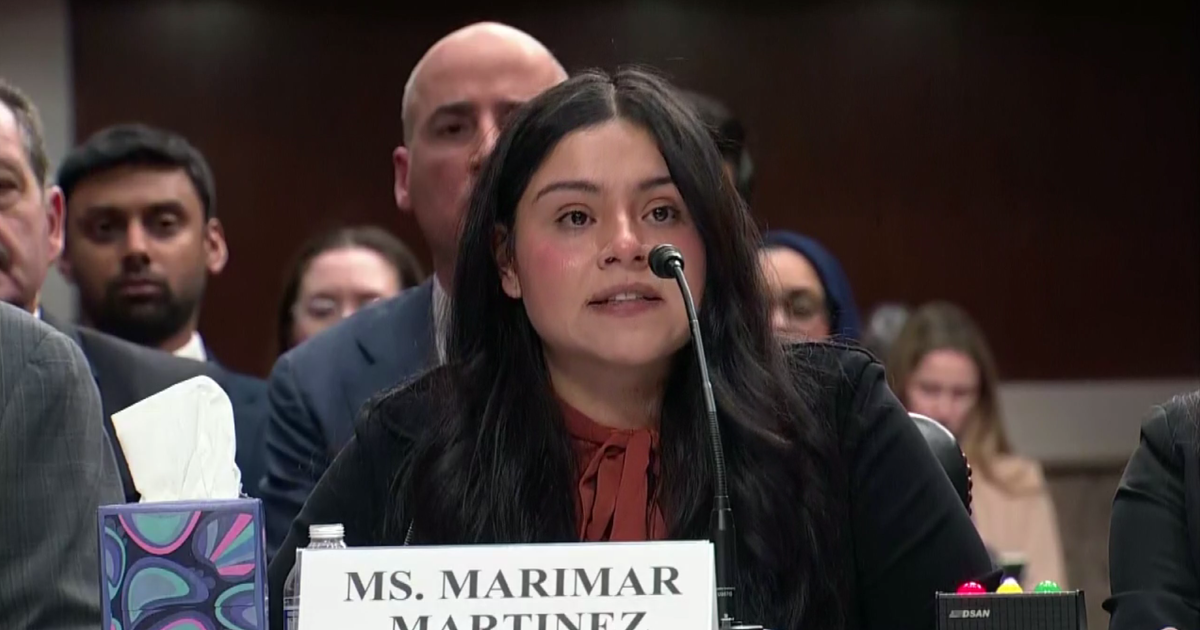'Transferring' The Arabs?
As the body count climbs in the holy land, Israelis are so desperate for a solution, so convinced that peace is not possible that nearly half of them say they favor a policy called "Transfer."
You've probably never heard the term. Until recently, it was never discussed in polite Israeli society. It means simply "Arabs get out" and only marginal extremists dared advocate it in public until now, reports 60 Minutes II correspondent Bob Simon.
Yasser Arafat, the man Israelis and Americans recently called a partner in peace, is in his sixth day as a hostage in his own headquarters. One of the reasons is because he has refused to hand over the men who murdered Israeli tourism minister Rehavam Ze'evi a few months ago in Jerusalem.
Ze'evi, an ex-general, headed a tiny right wing party that openly called for the transfer of Palestinians out the West Bank and Gaza. Throughout Ze'evi's career, his transfer party was on the fringes, but, just months after his death, his idea has taken on new life.
And, Ze'evi's son, Palmach, has picked up his father's mantle: "We believe that two nations cannot share the same piece of land," says Palmach Ze'evi. "It doesn't work anywhere in the world. It doesn't work here. If two nations cannot share this land, it is for the Jews, for the Israelis, to stay in the land of Israel."
According to a poll last month conducted by a leading Israeli institute, 46 percent of Israeli Jews now agree.
"Unfortunately, transfer is becoming a legitimate political idea, " says Hirsh Goodman, senior research associate at Tel Aviv University's Jaffee Center for Strategic Studies, which conducted the survey.
"The word 'transfer' has definitely become a code for separation: 'let's disengage, get them out of my life. I cannot live with these people.'"
Transfer has entered the mainstream because disaster has become part of daily life in Israel. Having a beer in a café, going to the supermarket, taking a bus and celebrating the first night of Passover all have become risky because of suicide bombings by Palestinians.
"The country is boiling with anger and they can't see a political solution," says Goodman. "So they are saying 'Them there and us here' and the right wing politicians are pouncing on that sentiment."
Right wing politicians are not saying that Palestinians should be forced out of the country, the way so many were during Israel's war of independence in 1948. What they are suggesting is that the army make life so impossible for the Palestinians that they will choose to leave.
And whether or not that is the army's objective, it's certainly what's happening in Ramallah right now. There's no risk of getting blown up in a supermarket; it's impossible to get there because tanks block the streets and snipers shoot anyone who looks threatening.
"If people find the situation so hard and so dangerous that they prefer to move to some other part of the world or some other part of the region, it's a tragedy but it is something that I cannot stop," says Effi Eitam, once a top Israeli general who is now retired.
"As a result of war, many Palestinians may find themselves again as refugees, on the other side, the eastern side, of the Jordan River," he says.
Eitam and many of his colleagues on the far right say Palestinians can live and farm their fields with broad civilian autonomy but would have no vote and no army. They can accept those conditions or leave.
Palestinians Naim and Rana Daour say 'no' to both options. They live with their two children in the West Bank town of Hebron, where their families' roots go back 1,200 years.
"We believe that our fate and destiny is to live here, and to die here," says Naim. "Leaving this will be leaving our culture, our heritage, our religion, our identity, our past and our future."
The Daours are not surprised about the poll results on "transfer." They say it's clear that Israel is moving to the political right.
But then so are the Palestinians.
"If if you ask Palestinians today what they think about the Israelis, they would have some similar poll, what to do with Israelis," says Professor Munzer Dajani, who teaches sociology in Jerusalem.
"I'm not speaking about driving them to the sea, but I am speaking about sending them back to Russia and Poland and Czechoslovakia," he says. "I think the Palestinians would feel very strongly that these people should go back home."
But, of course, Israelis say they are home. And the Jewish settlers in Hebron add that if you don't believe it, read the Bible.
"This country is Jewish country. It's Jewish land. It was given by god to the Jewish people," says Noam Arnon, a settler leader.
Palmach Ze'evi doesn't flinch at the thought of the removal of hundreds of thousands of Palestinians. "The Americans have done much more dramatic moves in order to stop violence and end conflict," he says. "Remember the Second World War? Remember how it ended in Japan? We're talking about a much more civilized solution."
Of course, that depends who you talk to.
"Do you think the Israeli army, do you think my son, is going to put people in a bus and transfer them across the border," asks Goodman. He claims such a move would destroy Israel morally.
"We're going to live like a scourge, with transfer - the mark of Cain - on our foreheads? I cannot conceive that a Jew would see putting people on a railway carriage, and transferring them anywhere. It is totally inconceivable that a Jewish state would do that."
But Ze'evi has a different view: "One nation is gonna be forced out of here. One tribe is gonna go out. I prefer it's the Arabs."



